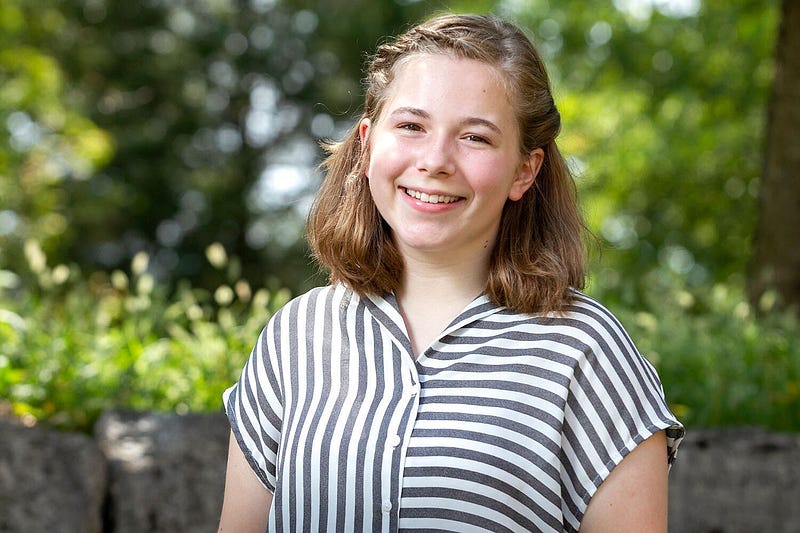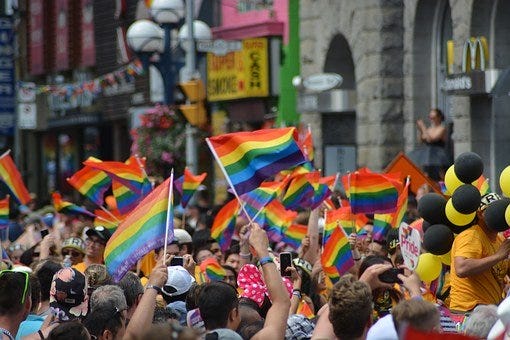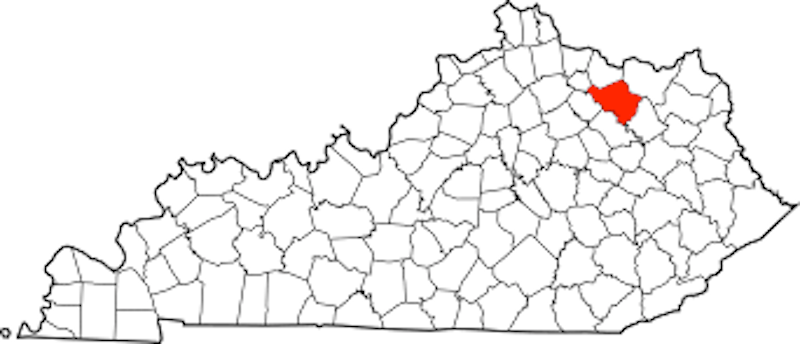For most of my life, I moved through school as the “smart kid,” the “good kid,” and the “teacher’s pet.” It wasn’t until my sophomore year when I formally came out as queer that I felt that the education system wasn’t designed for me. It was no longer empathy that I felt for marginalized peers, but a shared understanding. Teachers treated me differently when I walked through the halls with my then-girlfriend. I had friends that stopped talking to me, and I felt that if something happened, I wouldn’t be able to go to the administration. I had peers call me slurs and teachers not bat an eye. It was a striking change from the previous status and treatment I had received.
Unlike the response I experienced at school, my parents were supportive from the moment I came out, and nothing changed at home. When I moved to my current school, I was met with an overwhelmingly supportive community where I had dozens of peers that were out and expressive with their identity. I am now a part of a thriving Gender Sexuality Alliance (GSA) that provides support for all the LGBTQ+ students at my school. On top of having so many peers in the LGBTQ+ community, I am now surrounded by allies that openly speak out against hate and staff that support and accept me for who I am.
Teachers treated me differently when I walked through the halls with my then-girlfriend. I had friends that stopped talking to me, and I felt that if something happened, I wouldn’t be able to go to the administration. I had peers call me slurs and teachers not bat an eye. It was a striking change from the previous status and treatment I had received.
My story echoes that of thousands of other LGBTQ+ students navigating coming out in schools that offer little support and communities that exclude us because they deem our very existence immoral. Harmful policies, discrimination, and victimization severly harm LGBTQ+ students’ mental health. So with 70.1% of LGBTQ+ students reporting verbal harassment based on sexual orientation, 28.9% being physically harassed, and 48.7% LGBTQ+ students being cyberbullied, the toll on mental health is not surprising. In fact, LGBTQ+ students are twice as likely to feel suicidal and over four times more likely to attempt suicide than heterosexual peers. The rates are even higher for transgender youth, with one in three seriously considering suicide and one in five attempting suicide. One study found that 40% of transgender adults have attempted suicide with 92% of those adults attempting it before they were 25.
Schools are often not the most supportive place for LGBTQ+ students. We are rarely adequately protected, and supports are often isolated to individuals, teachers, and small groups. A closeted sophomore said, “My school is somewhat supportive, though I think it could be more supportive overall. There is a GSA — Gay Straight Alliance — club, and the vast majority of staff members are accepting, but there is little done in terms of educating students on LGBTQ+ related topics.” GSAs (Gay Straight Alliance or Gender Sexuality Alliance) can be a source of support and welcoming for many LGBTQ+ students. Students from schools with GSAs are less likely to hear homophobic and transphobic remarks, less likely to feel unsafe due to sexual orientation or gender expression, and more likely to have teachers that intervene in cases of harassment on the basis of sexual orientation and gender expression.
The point this student made about the lack of education on LGBTQ+ topics is also a problem in schools across the country. Abstinence-only sex education makes it difficult for teachers to even address the topic of sexual diversity with their students. Trying to incorporate LGBTQ+ inclusive content can be particularly difficult in many subject areas. Teacher preparation programs rarely include LGBTQ+ students when covering multicultural education and teaching to minority students. This puts teachers in a spot where they have little training to effectively educate their students on this topic, so it is often not included. Many teachers are also afraid of consequences from parents and administration for discussing a topic often deemed “inappropriate.” Despite all of the barriers for implementing LGBTQ+ inclusive content, when it is implemented, it has been linked to less bullying and harassment toward LGBTQ+ students.
“I don’t want to be known as the one gay kid.”
Coming out can be a scary and vulnerable experience for many people. Fears about losing friends, being viewed or treated differently, and bullying often prevent students from coming out at school. The sophomore mentioned this anxiety, saying, “While I know that there are straight allies and LGBTQ+ people in my school, it seems like a majority of students either know very little about LGBTQ+ or are directly intolerant. I worry that coming out will somehow deny me of future opportunities or will lead to me being outed outside of school. I don’t want to be known as the one gay kid.”
Coming out at school can be stressful enough, but for some, the real battle is coming out at home. For example, the student continued to say, “I’m pretty scared of it [coming out]. I think religion, as well as opinions heard in my house, have sort of led me to think that if I came out, I would be viewed completely differently. I’m constantly worried that one day I’ll go from being loved as I am to suddenly being avoided. It also sort of sucks, since I don’t really identify as “gay” or “queer,” and it seems like a lot of people’s understanding starts and ends with those two terms. So I don’t know if people would even know what my sexuality is, which scares me even more. Sure, I sometimes make occasional jokes that hint to my sexuality around people I think are safe, but at the end of the day, I’ve been taught to view heterosexuality as the “right path,” and anything else to be some kind of sin. So I just avoid talking about it, and I hope it’s a secret I can keep with me.”
The coming out experience is completely unique to each person. Different schools, homes, personal beliefs, and support systems impact when and to whom someone is ready to come out. A senior that identifies as asexual said, “I’m mostly just out to people in my school’s GSA. They are all accepting and cool about it as you would expect from people in GSA. My identity is not very well known, so I have had some people ask me what it means. I have come out to a couple of people outside GSA and it always makes me really nervous. I hate doing it, but no one has ever reacted negatively. The worst experiences I’ve had are people poking fun at me.”
When students do decide to come out, other issues arise, including the questions that are asked after you come out. Beyond lesbian and gay, many people are a little clueless about other sexual orientations and gender expressions. For those of us that identify with a less common sexuality or gender expression, a common question is “what are you?” They never mean how do you identify, because the follow up question is always “but what do you like?” or “what were you?” Their real question is “who do you want to have sex with?” or “what do your genitals look like?” It is always uncomfortable and can feel degrading. The lack of knowledge about the LGBTQ+ community is disheartening and makes it even harder for progress to be made to support and protect us. Time and time again, I’ve been put in the uncomfortable position of educating people decades older than me on my sexuality and the importance of protective legislation, comprehensive school policies, access to healthcare, and respecting pronouns.
On National Coming Out Day (October 11th), we celebrate the progress we have made as a community and recognize the lengths that we have to go to ensure safer schools and communities for LGBTQ+ people. For me, it is a reminder of the courage it takes for people like me to live their true selves and the gratitude I have for my friends and family that have helped me live as my authentic self. As the sophomore said, “National Coming Out day is sort of a sign of hope for me. It makes me think that maybe someday, I can finally be fully out. While it’s hopeful, it’s also sort of sad, because I know i’m not there yet, and I won’t be there for at least a few years. But someday, I’ll be okay with myself fully. I have to believe that.”
If you are an LGBTQ+ youth struggling with your sexuality, The Trevor Project is an excellent resource for help. If you are considering suicide, please call the National Suicide Prevention Lifeline at 800–273–8255. Help is always available.


Sofie Farmer is a senior at the Gatton Academy.
The opinions expressed on the Forum represent the individual students to whom they are attributed. They do not reflect the official position or opinion of the Prichard Committee for Academic Excellence or the Student Voice Team. Read about our policies.













